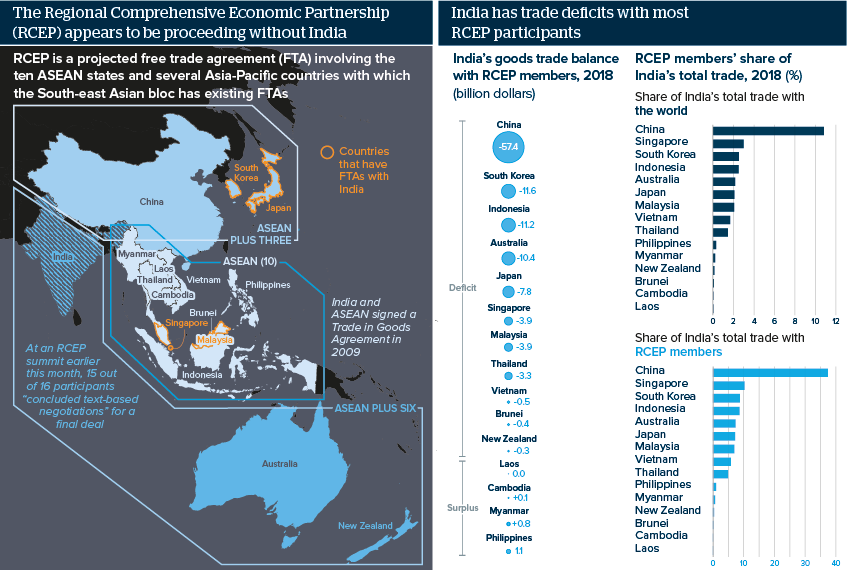Bilateralism will define India’s regional trade policy
After rejecting the Regional Comprehensive Economic Partnership, Delhi is set to recalibrate its trade relations
Source: IMF Direction of Trade Statistics; Oxford Analytica
Outlook
A statement released at the end of this month’s RCEP summit left room for Delhi to join the pact, saying India would take a final decision once all participants had attempted to resolve its “outstanding issues”.
India’s long-standing concerns about dumping of cheap Chinese goods, reflected in widespread domestic resistance to RCEP, mean that Delhi is unlikely to change course. RCEP will probably be signed in late 2020, without India.
Delhi will take a more bilateral approach to its trade policy, giving priority to redressing the trade imbalances it has with many of its Asia-Pacific partners.
Impacts
- India will try to export more goods to ASEAN economies, making greater use of its existing FTA with the regional bloc.
- Delhi’s protectionist concerns will stymie trade negotiations between India and China.
- India will seek greater market access for its services, across the region.
See also
- Key trade pact will be signed at ASEAN summit - Nov 5, 2020
- Countryside may help ease India’s economic downturn - Jul 7, 2020
- India and China will avoid war but grow further apart - Jun 23, 2020
- India and EU will deepen strategic partnership - Dec 16, 2019
- Prospects for India in 2020 - Nov 22, 2019
- ASEAN and partners are far from sealing key trade pact - Oct 24, 2019
- More graphic analysis
